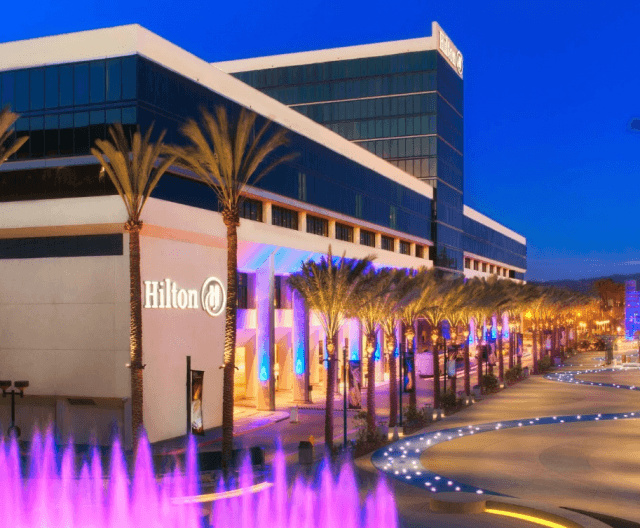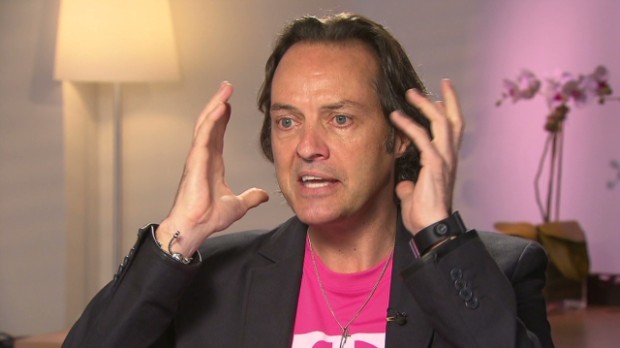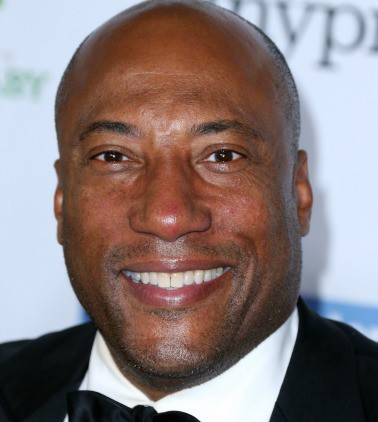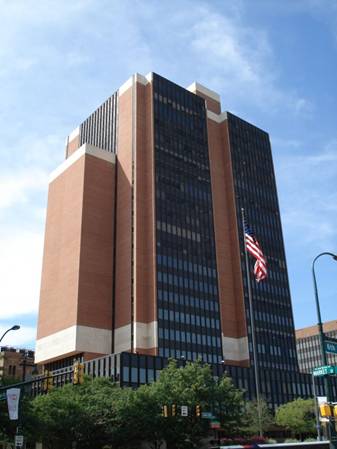
The Hilton Convention Center in Anaheim, Calif. Come for the color but don’t stay for the $500 Wi-Fi.
The Federal Communications Commission’s Enforcement Bureau today announced a tentative $25,000 fine against Hilton Worldwide Holdings, Inc., owner of the Hilton Hotel Chain, for allegedly obstructing a FCC investigation into the blocking of consumers’ use of personal Wi-Fi while visiting hotel properties.
“Hotel guests deserve to have their Wi-Fi blocking complaints investigated by the Commission,” said Travis LeBlanc, chief of the FCC Enforcement Bureau. “To permit any company to unilaterally redefine the scope of our investigation would undermine the independent search for the truth and the due administration of the law.”
The regulator accuses Hilton of stonewalling requests for information and documents about how the hotel chain manages Wi-Fi for visitors and guests. In August 2014, the FCC received a consumer complaint accusing Hilton of purposely blocking visitors’ Wi-Fi hot spots on its property in Anaheim, Calif., to compel guests to pay a $500 fee to use Hilton’s own Wi-Fi network. The complaint was followed by others who alleged similar experiences with Hilton hotels elsewhere.
In most cases, fees of that amount are sought from vendors attending conventions and other large events held at Hilton hotels. Wi-Fi services can be a lucrative revenue generator, but not if vendors rely on company or personal cell phone hotspot services to bypass the hotel’s internal Wi-Fi network. Hilton hotels in the area generally offer Wi-Fi in rooms for prices ranging from free to $14.95 a night. The charges evidently vary depending on the promotion in effect when a room is booked. Fees for convention vendors are often dramatically higher, which seems to be the case surrounding this complaint.
In November 2014, the FCC issued Hilton a letter of inquiry seeking information concerning basic company information, relevant corporate policies, and specifics regarding Wi-Fi management practices at Hilton-brand properties in the United States. After nearly one year, the FCC alleges Hilton has effectively ignored the FCC’s request for the vast majority of its properties. Hilton runs hotels under the Hilton, Conrad, DoubleTree, Embassy Suites, and Waldorf Astoria brands.
In the last two years, the FCC has made it clear it will aggressively pursue and fine those intentionally interfering with Wi-Fi signals, especially if a revenue motive is found. In October 2014, the FCC fined Marriott International, Inc. and Marriott Hotel Services, Inc. $600,000 for similar Wi-Fi blocking activities at the Gaylord Opryland Hotel and Convention Center in Nashville, Tenn. In August 2015, the FCC fined Smart City Holdings, LLC $750,000 for similar Wi-Fi blocking at multiple convention centers across the country. The Commission also recently proposed to fine M.C. Dean $718,000 for apparent Wi-Fi blocking at the Baltimore Convention Center.


 Subscribe
Subscribe

 The unstated reality of Internet traffic growth usually leaves out what impact streaming pornographic videos can have on network traffic, and for consumers, their broadband usage allowance. We are about to find out with last week’s arrival of Pornhub Premium (
The unstated reality of Internet traffic growth usually leaves out what impact streaming pornographic videos can have on network traffic, and for consumers, their broadband usage allowance. We are about to find out with last week’s arrival of Pornhub Premium (

 A Philadelphia woman is
A Philadelphia woman is 
